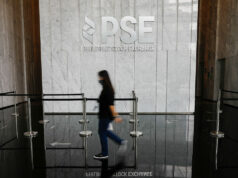TRUST: The most stable ‘currency’ in the COVID-19 crisis and recovery
The rise of COVID-19 from a “crisis-to-watch” back in late December 2019 to a global pandemic that saw every country go into virtual lockdown, is nothing short of meteoric. The world’s economy fell into the doldrums with businesses (except for a handful) struggling with almost non-existent operations, disrupted supply chains, and an unprecedented surge or drop in demand that were not even in any planning scenario. We are all caught flat-footed by this continuously evolving threat, at a loss as to what will come next, not knowing where to start our business continuity and recovery efforts.
The COVID-19 pandemic is redefining many aspects of society, the environment and the world. It is revealing vulnerabilities of both public and private institutions, and in sharp contrast, showing the strengths of communities, families, and individuals to come together and “save the day.” We see heightened activities in social media that have become a potent “microphone” for the people to say what they think and feel; and how this is being used to amplify the message that the governed should have influence over the decisions and actions of those who govern. Trust has become the most stable “currency” that institutions must have in huge reserves to engage stakeholders.
The acceptance or rejection of the behavior, actions, and policies adopted by the government and business organizations depend on how well they are trusted to deliver what was promised.
People are looking closely not at just the plans, but how well these are implemented; not just at the pronouncements or press releases but what their networks’ — families, friends, co-employees, communities — testimonials are. The talk must be the walk.
Therein lies the challenge. Because trust is a critical factor in crisis, its presence constitutes major capital for organizations and leaders, one that can be leveraged on to bounce back and recover faster in the aftermath. Conversely, its absence will dictate how long a time they will need to regain lost ground, if they survive at all.
How are their actions increasing or decreasing their trust reserves? The most successful brands use their power and capabilities to be at least one of these qualities to their stakeholders: helpful, useful, or uplifting.
For instance, insurance company Pru Life UK offered free COVID-19 insurance for 500,000 Filipinos through its healthcare management app, Pulse. HP Philippines provides free printable templates to engage parents looking for activities to do with their children while stuck at home during the lockdown. Total Philippines showed its support for medical frontliners by letting them gas up for free at key Total stations around Manila.
Companies who are showing compassion to their employees by coming to their assistance at this time of need are perceived more favorably than those who are announcing plans to lay off workers. Airlines are winning and losing by the policies they adopt on cancellations and refunds.
There are LGUs that are stepping up and providing creative solutions to provide access to food and transportation; and the people responded by coming to the rescue of these trusted leaders, protecting them from political repercussions. In contrast, we also witness how the political shine of other local leaders dimmed because of the lack of trust that they can deliver.
Communication with stakeholders has become a critical component in trust-building. Credible, transparent, and reliable information is the best defense against lies, fear, anxiety, and wrong perceptions. Because the medium is the message, it is vital that leaders and organizations pay equal importance to both content and the one tasked to deliver this, to ensure that the narrative covers all the touchpoints — not just with data and numbers, but also with emotions. Proper communication cannot be left to chance; it requires insights, empathy, critical thinking, and discipline to strike a note that will swing the trust meter in the right direction.
Finally, we must not be afraid to say that we do not have all the answers and that we can commit mistakes. Transparency is a must if we are to build a trust-based relationship with our stakeholders.
Gaining the trust of our stakeholders takes time. It adds up with every action that shows how we put the customer first by giving them their money’s worth; by how we improve their experience with every complaint they report; by how well we treat our employees; by the importance we place on purpose, not just profit; and by our concern for the environment, sustainability and governance.
Communication is the bridge that connects what we do to build this trust, the stakeholders we need to build relationships with, and with society in general.
This article reflects the personal opinion of the author and does not reflect the official stand of the Management Association of the Philippines or the MAP)
Junie del Mundo is Vice-Chair of the MAP CEO Conference Committee and the Chair and CEO of The EON Group, a fully integrated communications consultancy with expertise in consumer and corporate PR, reputation management and public affairs, digital marketing and creative technology, and experiential marketing.



